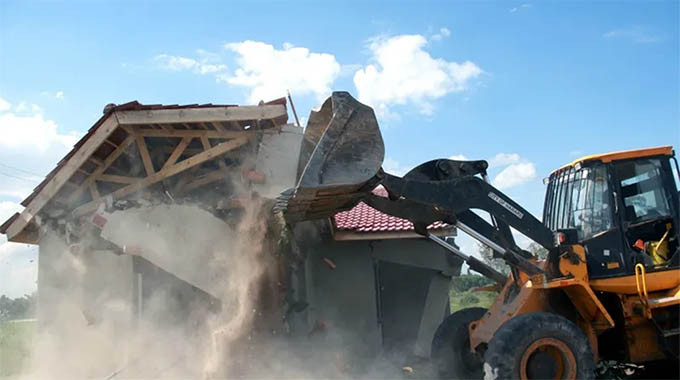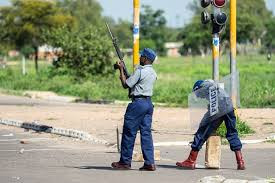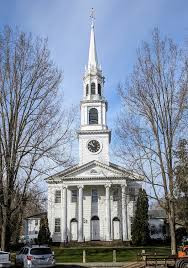
Judith February On December 5 we marked the seventh anniversary of the late former South African President Nelson Madiba Mandela’s passing, while 10 December marked the 24th anniversary of the final Constitution which was signed into law by him at Sharpeville in 1996.
Somehow it seems fitting that these important events are five days apart on the calendar even if separated by 17 years.
The adoption of our final Constitution was a significant milestone, though 24 years are not the same as 25 and so 2021 will doubtless be the year where we look at the making of our Constitution and the road we have travelled, more carefully.
While the Constitution remains a lodestar to those who believe in the constitutional democracy we wrought, it has now become fashionable to blame Madiba and the Constitution itself for lack of transformation within our society. It is a limited argument that ignores the politics of the day and the corruption and mismanagement that lies at the heart of our inability to ensure basic rights are protected.
A more expansive notion of constitutionalism was proffered by former Chief Justice Pius Langa when he said: “Transformation is a permanent ideal, a way of looking at the world that creates a space is in which dialogue and contestation are truly possible, in which new ways of being are constantly explored and created, accepted and rejected and in which change is unpredictable but the idea of change is constant. This is perhaps the ultimate vision of a transformative constitution . . . It envisions a society that will always be open to change and contestation, a society that will always be defined by transformation.”
Most democracies find such mature contestation tricky to navigate. South Africa is no different.
Given the challenges South Africa faces, it is easy (and perhaps inevitable) to slip into reductionist thinking on the Constitution itself, that it is an imported liberal concept and not worth the paper it is written on. But in a world of cheap populism and easy answers, now more than ever we need to dispel what is reductionist and ahistorical.
Former Constitutional Court judge Justice Albie Sachs is a charming storyteller.
- Chamisa under fire over US$120K donation
- Mavhunga puts DeMbare into Chibuku quarterfinals
- Pension funds bet on Cabora Bassa oilfields
- Councils defy govt fire tender directive
Keep Reading
He talks of his debates on constitutionalism with his old friend, the late Kader Asmal, with humour and relish. Sachs never misses an opportunity to explain the African National Congress (ANC)’s debates on the Bill of Rights and the Constitution. In these confusing times of noisy debate about constitutionalism, his recollections are worth pondering.
Sachs describes the pre-1990s rights debates within the ANC as difficult and often fierce. Is the fight for human rights a “luxury” when one is fighting for national liberation from a system as brutal as apartheid? Sachs often recalls how some within the ANC believed that a Bill of Rights would only seek to protect entrenched (white) privilege while not providing the majority of citizens with true protection.
During the 2016 #feesmustfall activism, the Constitution itself came under scrutiny. For many younger South Africans, the overwhelming narrative was, crudely put, that white people had everything, black people entered a compromise in 1994 so whites could keep just about everything, and hand black people scraps off the table.
It is an analysis that does not take into account the global and political context of the time and does not truly engage with many of the deeply progressive Constitutional Court judgments which have been handed down since 1996. Yet given the high levels of inequality, it can be compelling in a populist way. It is important that citizens engage with the Constitution Critically, however, and one cannot help thinking that constitutional education is now more crucial than ever — in schools and universities especially.
Our greatest gift to Madiba and the architects of our democracy is to do all we can to protect the Constitution and deepen our understanding of the principles which underpin it.
Sachs offers a powerful counter-narrative to some of the current criticisms of the constitution-making process. Such counter-narratives from one of the “founding fathers” are crucial if we are to have a reasoned debate about the past, present and future. He tells of the internal debate within the ANC, and how reason prevailed and the ANC under the astute and principled leadership of OR Tambo supported the concept of a Bill of Rights when the moment arose. OR, was set on constitutionalising aspects of the struggle, and in Sachs’ words, “learning from every source” and “widening the embrace” of the ANC as a movement, and in its thinking. Tambo’s (and the ANC’s) strategic position on the Bill of Rights was that it would exist to “protect everyone”, black and white, rich and poor and in Sachs’ words, that the Constitution itself was needed as protection against arbitrariness by all leaders and indeed, to be used “against ourselves”. That was 1988.
Sachs goes on to tell the story of creating something new, along with the late Kader Asmal — then a member of the ANC’s constitutional committee that included Brigitte Mabandla, Penuell Maduna and Zola Skweyiya. In that famous story of the “kitchen table”, Sachs describes how he and Asmal went about starting to draft the bare bones of the Constitution and the Bill of Rights at Asmal’s kitchen table in Dublin.
Sachs also uses the example of the Old Fort prison, the bricks of which were used to build a new Constitutional Court in the heart of Johannesburg. It represents the building of something new and powerful out of the old evil of the fort prison. Sachs’ recollection is important for its calm wisdom and wide reach into the past.
The Constitutional Court and our Constitution were, after all, about trying to accommodate a diversity of viewpoints and should be the starting point of our deliberations on difficult questions. It is a guide for our decision-making, for the exercise of public and private power and for reaffirming the right to dignity and equality.
South Africa in 2020 is a markedly different place from 1988. We have the right to speak, write what we like and more importantly, the context within which we do so has changed. We are yet seeking to shape this very messy environment in which we find ourselves, however.
The choice we made to be a constitutional democracy was not an accident, nor was it one that went without any debate and argument within the ANC and other parts of society. The commitment to fundamental rights and against the arbitrary exercise of power was deliberate. That our transition to democracy was flawed cannot be disputed. Without doubt, much still needs to be done to fundamentally change the lives of those who suffer all kinds of exclusion. We are also dealing with the consequences of a mostly dysfunctional ANC and the consequences of almost a decade of State capture.
In a society where millions live on the margins, it is easy to discount the constitution altogether. Yet, it remains a transformative and progressive instrument for bringing about change and a culture of human rights and accountability. Without it, a society with even greater levels of impunity beckons. Without it, we lose the framework for contestation about that which is difficult.
Our greatest gift to Madiba and the architects of our democracy is to do all we can to protect the Constitution and deepen our understanding of the principles which underpin it.
We will need to confront the challenges we face on the shopfloor, in offices and in the corridors of power especially at a time we need to save our institutions from complete degradation.
It means being brave about upholding our democracy and the guardrails the Constitution has put in place, even as South Africa faces socio-economic hardships and even as democracy around the world is under threat. We have to keep reminding ourselves that every generation is asked to defend the Constitution. It is the work we have to do to honour the previous generation who made for us “a pass at the infinite”.











